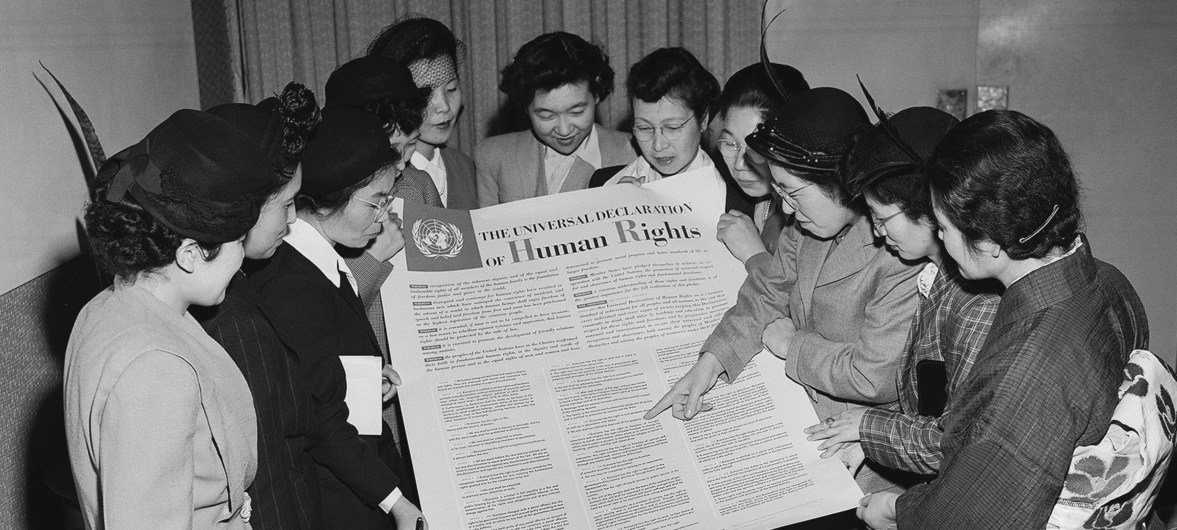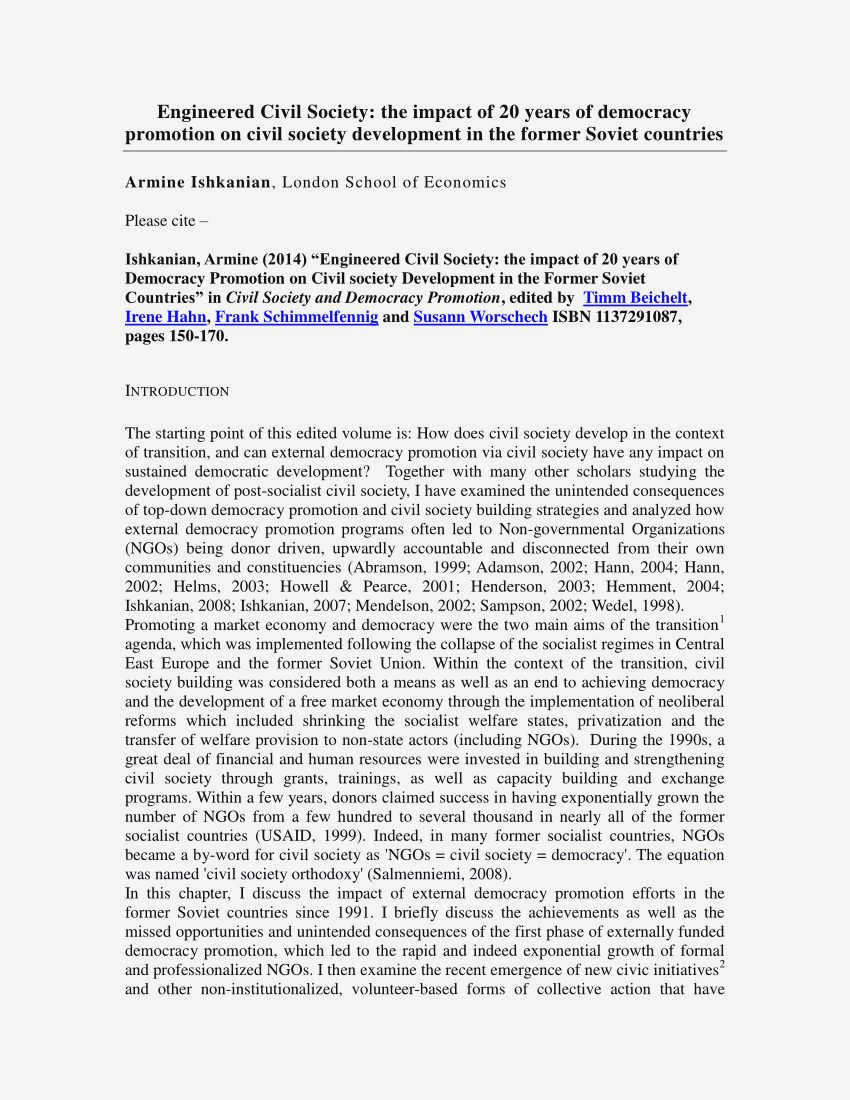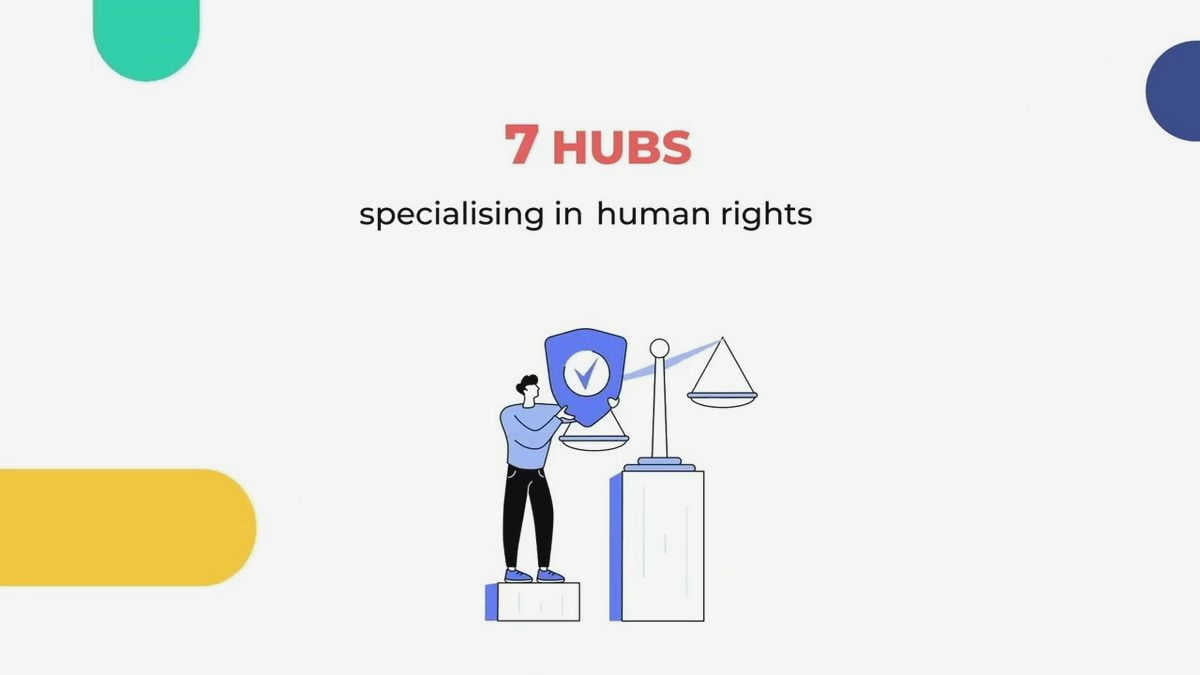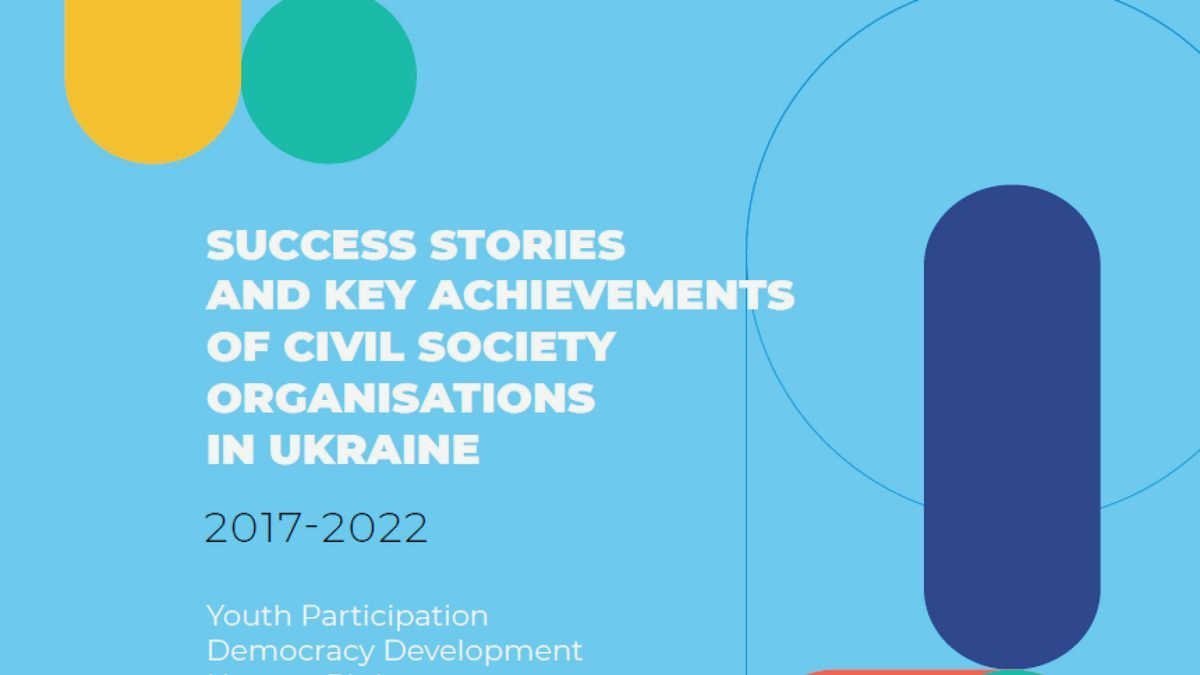Throughout history, civil society has played a crucial role in promoting and advocating for equal rights. From the fight for suffrage to the LGBTQ+ movement, ordinary citizens have come together to challenge discriminatory practices and create lasting change. These success stories are a testament to the power of collective action and the indomitable spirit of those who refuse to accept inequality.
One inspiring success story is the civil rights movement in the United States. Led by figures like Martin Luther King Jr., this movement fought against racial segregation and discrimination. Through nonviolent protests, acts of civil disobedience, and grassroots organizing, activists were able to bring attention to the injustices faced by African Americans and ignite a national conversation about racial equality.
In the realm of gender equality, the suffrage movement stands as a landmark achievement. Women’s suffrage activists fought tirelessly for the right to vote, facing ridicule, violence, and imprisonment in their quest for equal rights. Their determination and perseverance eventually led to the passage of the 19th Amendment in the United States, granting women the right to vote. This milestone not only empowered women politically but also laid the groundwork for future advancements in women’s rights.
The LGBTQ+ rights movement has also seen monumental successes in recent decades. Civil society organizations and activists have worked tirelessly to challenge discriminatory laws, promote acceptance, and demand equal treatment under the law. From the fight for marriage equality to the ongoing battle for transgender rights, these efforts have resulted in significant achievements and a shift in societal attitudes towards the LGBTQ+ community.
In the face of adversity, civil society has proven time and again that change is possible. By uniting around a common cause and refusing to be silenced, ordinary people have made extraordinary strides towards a more just and equal society. These success stories serve as a reminder of the immense power of collective action and the importance of never giving up the fight for equal rights.
Civil Society Organizations at the Forefront
Civil society organizations play a vital role in promoting equal rights and challenging societal norms that perpetuate discrimination and inequality. These organizations encompass a wide range of groups, including non-governmental organizations (NGOs), community-based organizations (CBOs), advocacy groups, and grassroots movements.
NGOs are often at the forefront of the fight for equal rights. These organizations are dedicated to addressing social, political, and economic issues, and their work focuses on advancing human rights and promoting inclusivity. They provide a platform for marginalized groups to voice their concerns and advocate for change, working tirelessly to ensure that the rights and needs of these communities are recognized and protected.
CBOs are another key player in the civil society landscape. These organizations are deeply rooted in local communities and work closely with marginalized or disadvantaged groups. CBOs engage in a range of activities, including capacity-building, community development, and advocacy. They often provide essential services and support to individuals who face discrimination or exclusion, offering a lifeline to those who may otherwise be overlooked by mainstream society.
Advocacy groups focus on raising awareness, mobilizing public support, and influencing decision-makers to effect positive change. These organizations are crucial in shaping public opinion and generating momentum for policy reform. Advocacy groups utilize various strategies, such as lobbying, public campaigns, and grassroots mobilization, to push for equal rights and challenge discriminatory practices.
Finally, grassroots movements are critical in promoting equal rights from the ground up. These movements, often led by those directly affected by discrimination, create a sense of solidarity and empower individuals to join forces and demand change. Grassroots movements harness the power of collective action, seeking to challenge existing power structures and transform societal norms.

In conclusion, civil society organizations are vital in promoting equal rights and challenging discriminatory practices. Through their commitment, dedication, and tireless efforts, these organizations play a crucial role in shaping a more inclusive and just society.
Championing LGBTQ+ Rights
The Fight for Equality
The LGBTQ+ community has long been advocating for equal rights and recognition in societies around the world. From the Stonewall riots in 1969 to the recent landmark Supreme Court rulings, countless individuals have dedicated themselves to championing LGBTQ+ rights and creating a more inclusive society.
Organizations like Human Rights Campaign, GLAAD, and International Lesbian, Gay, Bisexual, Trans and Intersex Association (ILGA) have played a crucial role in advancing LGBTQ+ rights globally. These organizations have tirelessly worked to raise awareness, advocate for legal protections, and promote acceptance and understanding.
Changing Attitudes
One of the key successes of civil society in promoting LGBTQ+ rights has been the shift in societal attitudes towards the LGBTQ+ community. Through education and outreach efforts, organizations and activists have been able to challenge stereotypes and dispel misinformation about LGBTQ+ individuals.
Media representation and storytelling have also played a significant role in changing attitudes towards the LGBTQ+ community. TV shows, films, and literature featuring LGBTQ+ characters and relationships have helped humanize and normalize their experiences, fostering greater empathy and understanding among the general public.
Legislative Achievements
Another important aspect of championing LGBTQ+ rights has been the push for legislative change. Civil society organizations and activists have successfully advocated for the decriminalization of same-sex relationships, the introduction of anti-discrimination laws, and the recognition of same-sex marriage in many countries.
These legislative achievements have not only granted LGBTQ+ individuals equal rights and protections under the law but have also helped to challenge societal norms and promote acceptance. They have provided a legal framework that reinforces the belief in equal treatment and non-discrimination for all individuals, regardless of their sexual orientation or gender identity.
Conclusion
The work of civil society in championing LGBTQ+ rights has been instrumental in bringing about significant progress in the fight for equality. Through their efforts, attitudes towards the LGBTQ+ community have evolved, laws have been changed, and meaningful steps have been taken towards a more inclusive and accepting society. However, there is still much work to be done to ensure full equality for LGBTQ+ individuals worldwide, and civil society will continue to play a vital role in achieving this goal.

Achieving Gender Equality
The Importance of Gender Equality
Gender equality is a fundamental human right and a necessary condition for the achievement of sustainable development. It is essential for creating a just and inclusive society that values all individuals, regardless of their gender identity or expression. Gender equality not only promotes social justice, but also contributes to economic growth and stability.
Promoting Gender Equality through Education
Education plays a crucial role in promoting gender equality. By ensuring equal access to quality education for women and girls, we can empower them to reach their full potential. This includes eliminating gender stereotypes and biases within educational institutions, as well as providing comprehensive sex education that promotes healthy relationships, consent, and respect.
Addressing Gender Inequality in the Workplace
Gender inequality in the workplace remains a significant barrier to achieving gender equality. It is essential to address the gender pay gap, promote equal opportunities for career advancement, and eliminate discrimination and harassment based on gender. Employers can play a crucial role in creating inclusive work environments by implementing policies and practices that support gender equality and diversity.
Ending Gender-Based Violence
Gender-based violence is a human rights violation that disproportionately affects women and girls. To achieve gender equality, it is crucial to address and prevent all forms of violence and harassment, including domestic violence, sexual assault, and femicide. This requires implementing comprehensive legal frameworks, providing support services for survivors, and promoting gender-sensitive attitudes and behaviors.
Fostering Male Engagement in Gender Equality
Gender equality is not just a women’s issue – it requires the active involvement and support of men and boys. Engaging men and boys in gender equality efforts can help challenge harmful gender norms and promote positive masculinity. This includes promoting men’s involvement in caregiving and household responsibilities, as well as advocating for men’s role in preventing and ending gender-based violence.
Conclusion
Achieving gender equality is a complex and ongoing process that requires the collective efforts of individuals, communities, civil society organizations, and governments. By promoting gender equality through education, addressing gender inequality in the workplace, ending gender-based violence, and fostering male engagement, we can create a more just and equal society for all.
Breaking Down Racial Discrimination
Racial discrimination has long been a prominent issue in societies around the world. It manifests in various forms, including social exclusion, unequal employment opportunities, and biased treatment in the criminal justice system. However, civil society organizations have played a crucial role in addressing and combating racial discrimination, working towards a more inclusive and equal society.
Advocacy and Awareness
Civil society organizations have been at the forefront of advocating for racial equality and raising awareness about the impacts of racial discrimination. They organize campaigns, workshops, and events that educate the public about the realities faced by marginalized communities. Through these efforts, they challenge stereotypes, promote empathy and understanding, and encourage individuals to take action against racial discrimination.
Legal Support and Representation
In many cases, racial discrimination is a violation of legal rights. Civil society organizations provide legal support and representation for victims of racial discrimination, ensuring that their voices are heard and their rights protected. These organizations also offer advice and assistance in navigating the legal system, empowering individuals to seek justice and hold perpetrators accountable for their discriminatory actions.
Promoting Diversity and Inclusion
Civil society organizations actively work towards creating inclusive spaces and promoting diversity. They collaborate with institutions and businesses to develop diversity and inclusion policies that address racial discrimination. Through initiatives like mentorship programs, scholarships, and job fairs, these organizations strive to enhance the representation and opportunities for individuals from marginalized racial backgrounds.
- Breaking down racial discrimination requires a multi-faceted and collaborative approach.
- Civil society organizations play a crucial role in shifting societal norms and dismantling systemic racism.
- By advocating for racial equality, providing legal support, and promoting diversity, these organizations contribute to the progress towards a more just and equal society.
Despite the challenges ahead, the success stories of civil society in breaking down racial discrimination have provided hope and inspiration for future efforts. Through their continued dedication and activism, these organizations are making significant strides towards a world where equal rights and opportunities are enjoyed by all, regardless of their racial background.
Addressing Socio-economic Inequalities
Socio-economic inequalities have long been a significant challenge in societies worldwide. Civil society organizations play a crucial role in addressing these inequalities and advocating for equal rights for all individuals.
One way civil society organizations address socio-economic inequalities is by providing access to essential services and resources. They create programs and initiatives aimed at bridging the gap between the rich and the poor, ensuring that everyone has access to quality education, healthcare, and basic necessities.
Socio-economic inequalities are often intertwined with discrimination based on gender, race, or ethnicity. Civil society organizations tackle these intersections by advocating for policies that promote equal opportunities and fair treatment for all individuals, regardless of their background.
Civil society organizations also work towards promoting economic empowerment. They provide vocational training and entrepreneurial support to marginalized communities, helping them gain the skills and resources necessary to start their businesses and become financially independent.
Furthermore, civil society organizations play an important role in raising awareness about socio-economic inequalities. They engage in public campaigns and conduct research to highlight the extent of these disparities and the need for change. By bringing these issues into the public discourse, they create momentum for action and encourage policymakers to address these inequalities.
The success stories of civil society organizations in addressing socio-economic inequalities are numerous. Through their dedicated efforts, they have helped shape policies and programs that promote equal rights and opportunities for all individuals, and contribute to building more inclusive and equitable societies.

Advocating for Disability Rights
The Importance of Disability Rights Advocacy
Advocacy for disability rights plays a crucial role in promoting equal opportunities and inclusivity for individuals with disabilities. It aims to eliminate discrimination and ensure that people with disabilities can fully participate in all aspects of society. By advocating for disability rights, individuals and organizations raise awareness, challenge unjust policies, and advocate for the implementation of laws and regulations that protect the rights of people with disabilities.
Challenging Stereotypes and Promoting Inclusion
One of the goals of disability rights advocacy is to challenge stereotypes and misconceptions about disability. Advocates work to promote a more inclusive society where individuals with disabilities are seen as valuable contributors and are not defined solely by their disabilities. They strive to create environments where people with disabilities can access education, employment, healthcare, and other essential services on an equal basis with others.
Advocacy Tools and Strategies
Disability rights advocates use various tools and strategies to advance their cause. These may include lobbying policymakers, organizing awareness campaigns, mobilizing public support, filing lawsuits to challenge discriminatory practices, and collaborating with other civil society organizations. Advocates also engage in capacity building by providing education and training on disability rights and empowering individuals with disabilities to advocate for themselves.
Global Initiatives and Collaborations
Disability rights advocacy is not limited to individual countries but has also gained recognition at the international level. Global initiatives such as the United Nations Convention on the Rights of Persons with Disabilities (CRPD) provide a framework for promoting and protecting disability rights worldwide. Disability rights advocates collaborate across borders, sharing best practices, and working towards common goals to achieve lasting change in the lives of individuals with disabilities.
Creating Lasting Change
Advocacy efforts for disability rights have yielded significant achievements, ranging from the implementation of inclusive education policies to the improvement of accessibility in public spaces. However, there is still much work to be done, as barriers and discrimination persist in many societies. By continuing to advocate for disability rights, individuals and organizations contribute to creating a more inclusive and equal society, where the rights of all individuals are respected and protected.
Protecting the Rights of Indigenous Peoples
Indigenous peoples around the world have faced significant challenges in protecting their rights. Colonization, displacement, and discrimination have historically led to the marginalization and dispossession of indigenous communities. However, civil society organizations have played a crucial role in advocating for the rights of indigenous peoples and promoting their inclusion and empowerment.
Building Awareness and Advocacy
Civil society organizations have raised awareness about the historical injustices faced by indigenous peoples and have advocated for their rights on international platforms. Through campaigns, public demonstrations, and lobbying efforts, these organizations have focused attention on the struggles and unique cultural heritage of indigenous communities.
Examples:
- An international coalition of civil society organizations successfully campaigned for the United Nations Declaration on the Rights of Indigenous Peoples in 2007. This declaration recognizes the rights of indigenous peoples to self-determination, land, and cultural preservation.
- Local civil society organizations have used social media platforms to raise awareness about the issues faced by indigenous communities, helping to mobilize support and advocate for their rights.
Protecting Land and Resources
The rights of indigenous peoples are closely tied to their ancestral lands, which often hold significant cultural and spiritual value. Civil society organizations have played a vital role in advocating for the protection and recognition of indigenous land rights.
Examples:
- Civil society organizations have supported indigenous communities in their legal battles to reclaim and protect their ancestral lands from encroachment by external actors, such as corporations or governments.
- These organizations have also worked to promote sustainable land management practices that respect indigenous knowledge and preserve biodiversity.
Supporting Cultural Revitalization
Indigenous cultures are rich and diverse, but they have also been under threat due to historical processes of assimilation and marginalization. Civil society organizations have focused on supporting cultural revitalization efforts to preserve indigenous languages, arts, and traditions.
Examples:
- Civil society organizations have conducted language preservation programs, providing resources and training to indigenous communities to help revive and maintain their native languages.
- These organizations have also supported initiatives that promote indigenous arts and crafts, helping to generate income for indigenous communities while preserving their cultural heritage.

In conclusion, civil society organizations have played a critical role in protecting the rights of indigenous peoples. Through advocacy, awareness-building, and support for land rights and cultural revitalization, these organizations have helped to bring about positive change and promote equal rights for indigenous communities worldwide.
Ensuring Access to Education for All
1. Advocacy and Awareness
To ensure access to education for all individuals, civil society organizations have been actively engaged in advocacy and raising awareness about the importance of equal educational opportunities. They have conducted campaigns, organized events, and created educational materials to highlight the barriers that different marginalized groups face and the long-term benefits of inclusive education.
Through their advocacy efforts, these organizations have been able to mobilize public support and put pressure on policymakers to prioritize education for all. They have also worked towards changing societal attitudes and perceptions, reducing discrimination, and promoting a more inclusive and accepting environment for all learners.
2. Community Engagement
Civil society groups have played a crucial role in engaging communities to ensure access to education for all. They have worked closely with local leaders, parents, teachers, and other stakeholders to identify and address the specific needs and challenges faced by marginalized groups. By involving the community in decision-making processes, these organizations have been able to develop more tailored and effective solutions.
They have organized community meetings, conducted surveys, and facilitated discussions to gather input and feedback from the community. This bottom-up approach has not only helped in identifying barriers but has also empowered the community to take ownership of the education system and work towards its improvement.
3. Policy Advocacy
Civil society organizations have been instrumental in advocating for policies and legal frameworks that promote equal access to education. They have conducted research, collected data, and produced policy briefs highlighting the gaps and inequalities in the education system. By presenting evidence-based recommendations, they have influenced policy discussions and presented feasible solutions to decision-makers.
These organizations have also actively participated in policy-making processes, ensuring that the voices and perspectives of marginalized groups are represented. They have collaborated with government entities, international organizations, and other stakeholders to develop inclusive policies, implement them effectively, and monitor their impact.
4. Direct Support and Interventions
In addition to advocacy efforts, civil society organizations have directly supported individuals and communities in accessing education. They have provided scholarships, grants, and financial assistance to students from marginalized backgrounds, enabling them to pursue their education. They have also established learning centers, libraries, and other educational facilities in underserved areas to bridge the educational gap.
Furthermore, these organizations have implemented targeted interventions to support learners with disabilities, refugees, and other vulnerable groups. They have developed inclusive teaching materials, trained teachers, and provided assistive technologies to ensure that no one is left behind in the pursuit of education.
Overall, civil society organizations have played a pivotal role in ensuring access to education for all. Through their advocacy, community engagement, policy advocacy, and direct support, they have contributed towards creating a more inclusive and equitable education system.
Promoting Religious Freedom and Tolerance
Religious freedom and tolerance play a crucial role in maintaining a harmonious and inclusive society. Civil society organizations have been instrumental in promoting and safeguarding these fundamental rights for individuals of diverse religious backgrounds.
One of the key initiatives undertaken by civil society has been to educate people about the importance of religious freedom and tolerance. Through awareness campaigns, workshops, and educational programs, organizations have been able to highlight the value of accepting and respecting different religious beliefs and practices.
Furthermore, civil society groups have been actively involved in advocating for legal protections to ensure religious freedom. They have lobbied for legislation that protects individuals from discrimination based on their religious beliefs and have worked to strengthen laws that guarantee access to religious spaces and practices.
In addition to advocacy and education, civil society organizations have also facilitated interfaith dialogue and cooperation. By bringing together representatives from different religious communities, these initiatives have fostered understanding, empathy, and tolerance among individuals with diverse religious backgrounds.
To effectively promote religious freedom and tolerance, civil society organizations have recognized the importance of collaboration and coalition building. By partnering with other like-minded organizations, they have been able to pool resources, share best practices, and amplify their impact in advancing equal rights for individuals of all religious affiliations.
Fighting for Environmental Justice
Environmental Discrimination
People all over the world are beginning to realize the importance of environmental justice. Environmental discrimination occurs when certain communities, typically marginalized or minority groups, bear a disproportionate burden of environmental pollution and degradation. Whether it’s polluted water, toxic waste dumps, or polluted air, these communities are unfairly subjected to the harmful effects of environmental pollution, which can lead to serious health problems and a reduced quality of life.
Community Movements
In response to environmental discrimination, community movements have emerged to fight for environmental justice. These advocacy groups aim to empower affected communities, raise awareness about environmental issues, and pressure governments and corporations to take action. They work tirelessly to ensure that marginalized communities are given a voice in decisions that affect their environment.
Equal Participation
A key principle of the fight for environmental justice is the belief that all individuals should have equal participation and access to decision-making processes regarding the environment. This includes the right to be informed, to have a say in policy-making, and to have access to legal avenues of recourse in cases of environmental harm. By advocating for equal participation, these community movements are challenging power structures that perpetuate environmental discrimination.
Creating Change
Through their advocacy and activism, community movements fighting for environmental justice have been able to create real change. They have successfully challenged government policies, held corporations accountable for polluting activities, and mobilized public support for environmental protection. These movements have not only improved the quality of life for affected communities, but they have also raised awareness about environmental issues on a global scale, leading to increased accountability and action from governments and corporations.
The Power of Civil Society
The success stories of community movements fighting for environmental justice illustrate the power of civil society in promoting equal rights. By organizing and mobilizing their communities, these grassroots movements have been able to effect change and achieve greater environmental equality. As we continue to face environmental challenges in the future, the stories and strategies of these movements serve as an inspiration and a reminder of the importance of civil society in shaping a more just and sustainable world.





